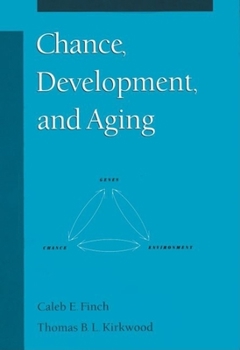Chance, Development, and Aging
Select Format
Select Condition 
Book Overview
In Chance, Development, and Aging, two leading biological gerontologists review and evaluate all of the available data to elucidate the respective roles played by genes and chance developmental events in determining the course of aging in individuals. The combination of genetic and external environmental influences provides only an incomplete answer. Inbred laboratory animals, for example, exhibit a wide range of life spans despite having nearly identical genes and environments. Similarly, uncovering the genetic risks for Alzheimer's disease has not enabled doctors to predict with confidence its onset and severity. This book argues that understanding chance events, specifically random variations during prenatal development, is essential for answering these questions. The book draws on the extensive research in developmental biology on random variations in form and function, while putting this research in a new context. The discussion sheds light on a range of questions, from understanding menopause to explaining why identical twins are not truly identical. The book will be invaluable for gerontologists, geneticists, developmental and reproductive biologists, physiologists, and a broad range of physicians and investigators in experimental medicine.
Format:Hardcover
Language:English
ISBN:0195133617
ISBN13:9780195133615
Release Date:January 2000
Publisher:Oxford University Press, USA
Length:288 Pages
Weight:0.80 lbs.
Dimensions:0.8" x 6.4" x 9.6"
Related Subjects
Medical Medical Books Science Science & Math Science & Scientists Science & TechnologyCustomer Reviews
0 rating





